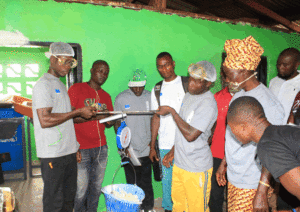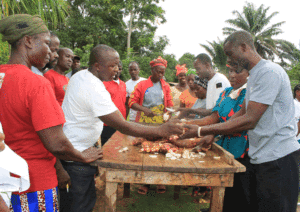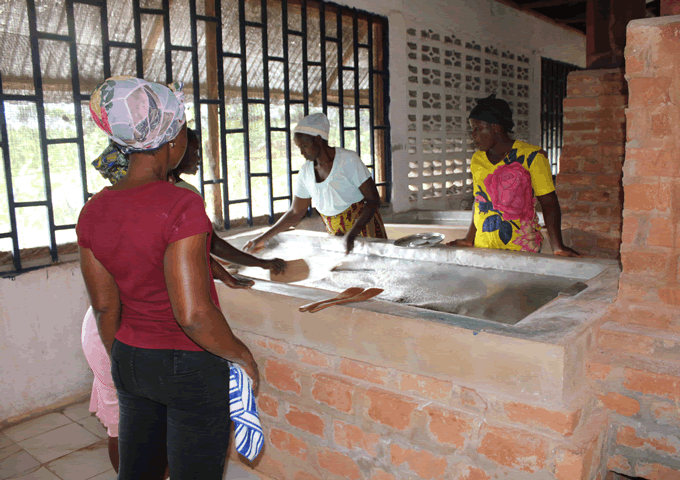To assess the quality of cassava products, two important factors must be taken into consideration; the requirement to ensure food safety and the need to safeguard the health of both the individual processor and the customer. It is therefore essential to implement a system that ensures food safety in order to maintain the reputation and image of local processors and to enhance their participation in both the international and domestic markets.
It was revealed during CASTRAP’s baseline survey in the project landscape that majority of processing centers assessed by the project team had no quality management system in place at their processing facilities. Because food safety is an issue, the result was that their finished cassava products were of poor quality, and this had an impact on their sales.


To enhance the processing and commercialization of the cassava value chain, CASTRAP team embarked on a series of activities aimed at providing technical support to its project beneficiaries. The training commenced in Grand Gedeh on July 11th and was completed in Maryland county on July 15th, 2021. The project team trained 80 processing group members including 45 females and 37 youth in Quality Management System (QMS); established quality management systems for four processing centers; and supported the set-up of the quality management team at each of the centers.
The training covered the description of quality gari and its production processes, identification of hazards and quality defects for each operation area, as well as, corrective measures in implementing the hazard analysis critical control point (HACCP).
One exciting feature of the QMS training was the practical demonstration of good hygiene practices in gari processing using the hazard analysis critical control point system. According to the results of the activity evaluation, the exercise was highly appreciated by participants.
The training would also be extended to other project target counties to cover additional 100 processors.





